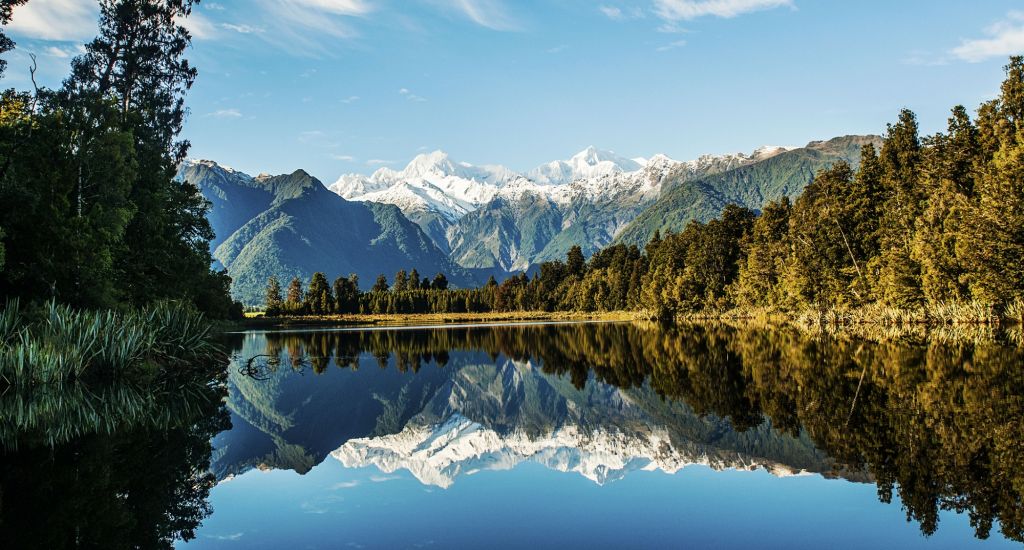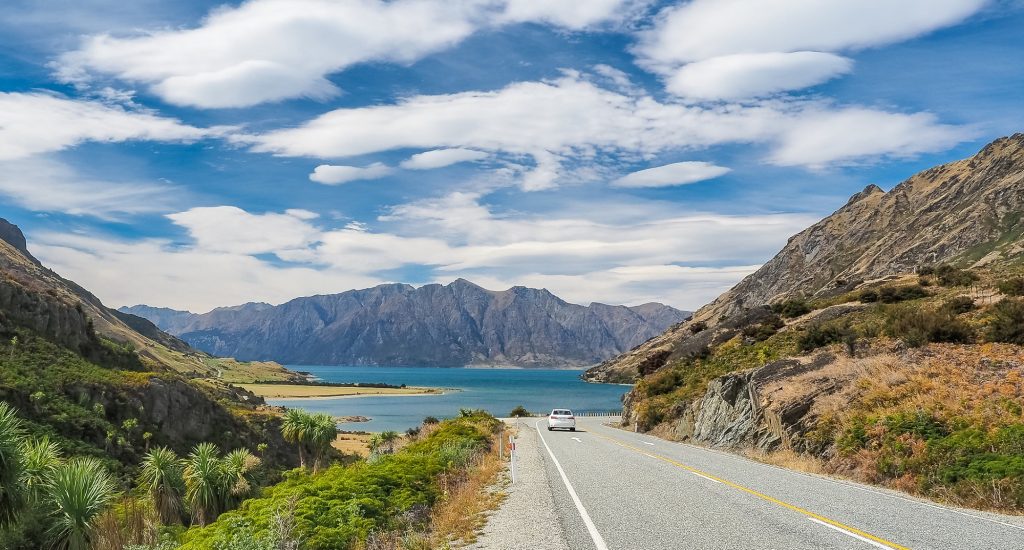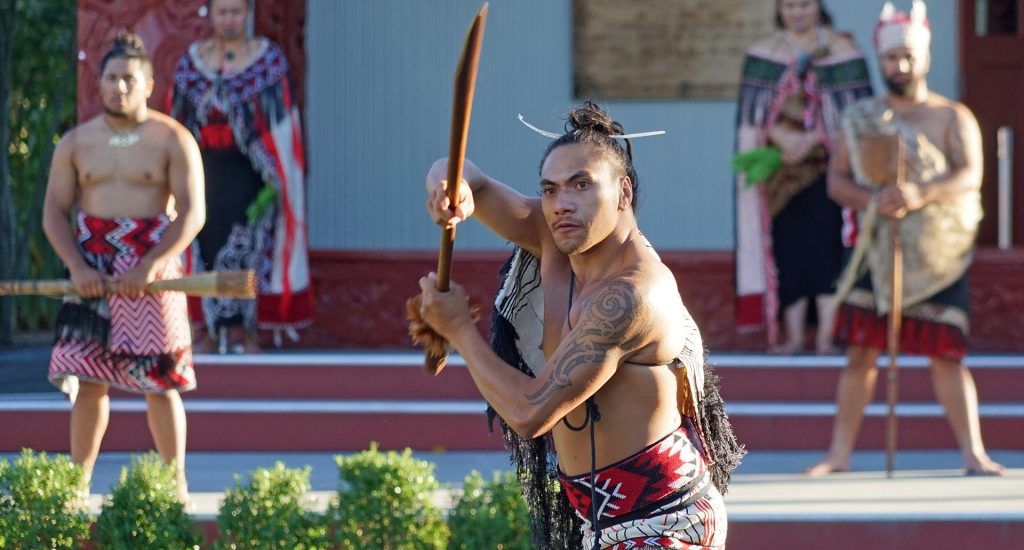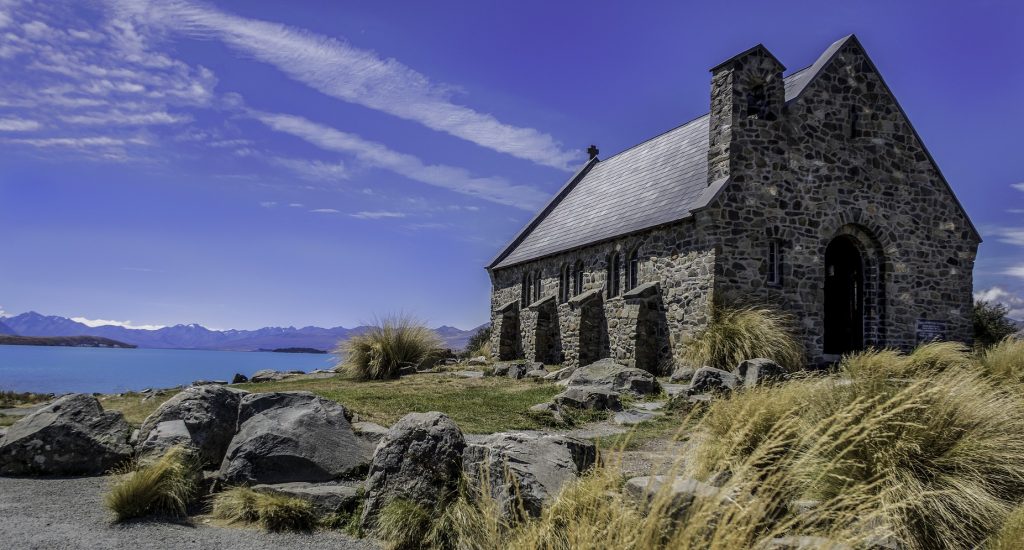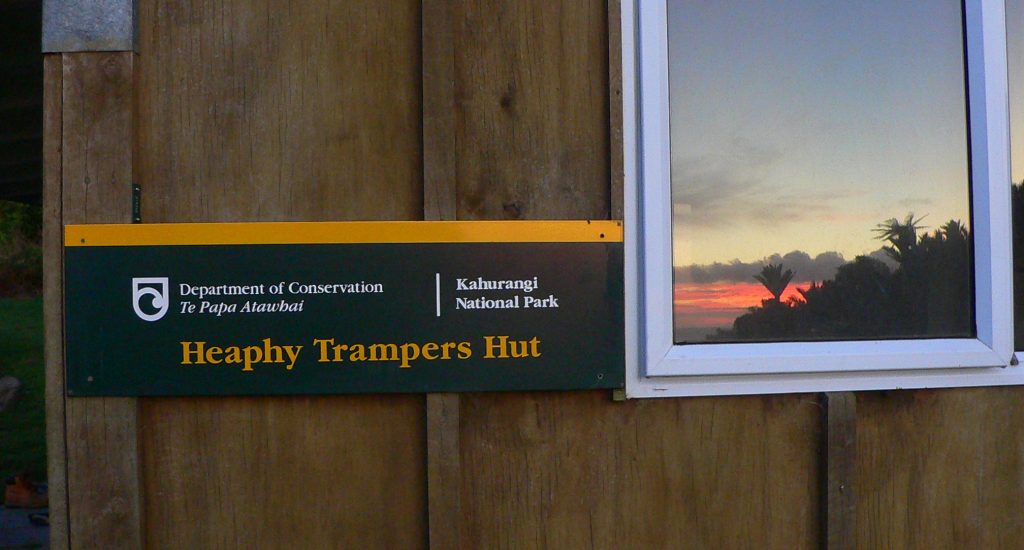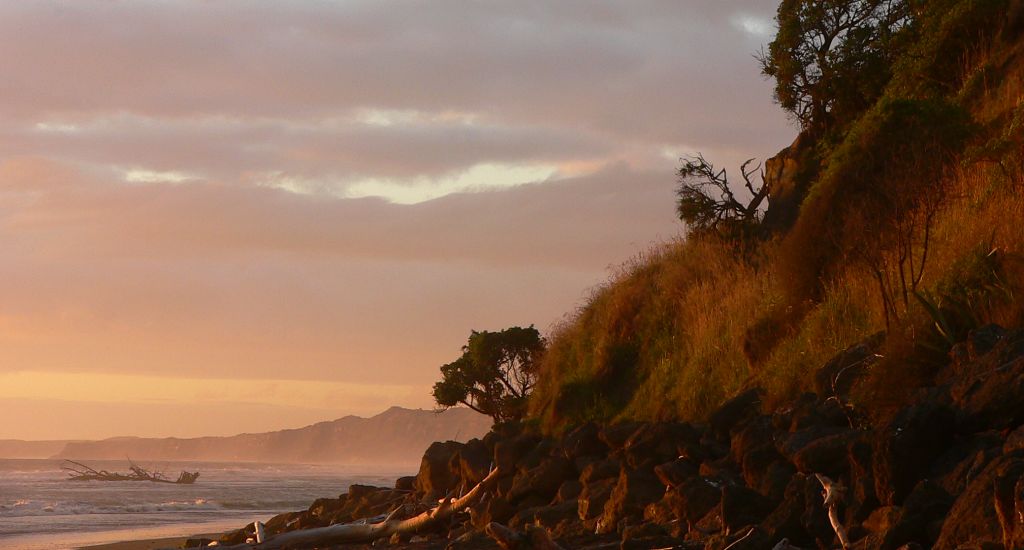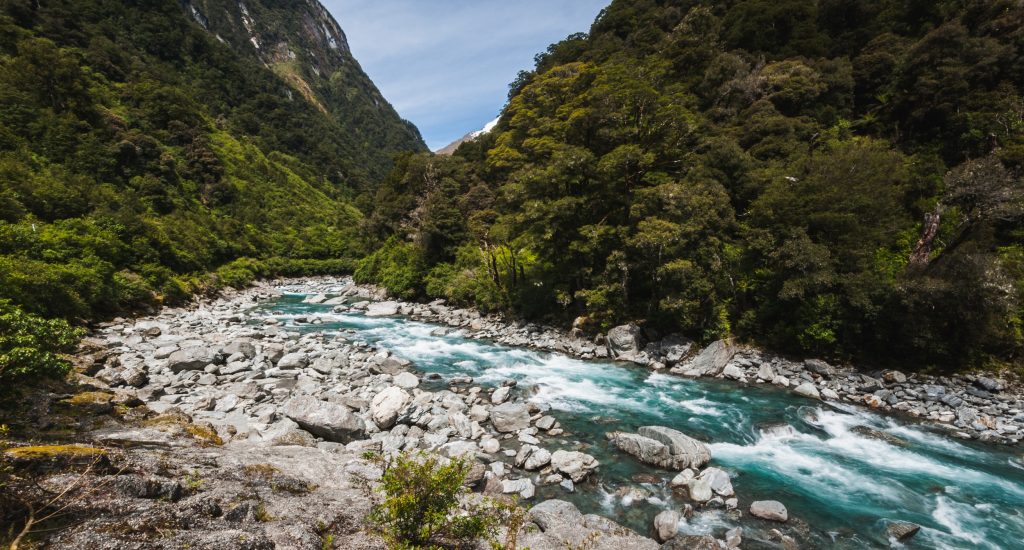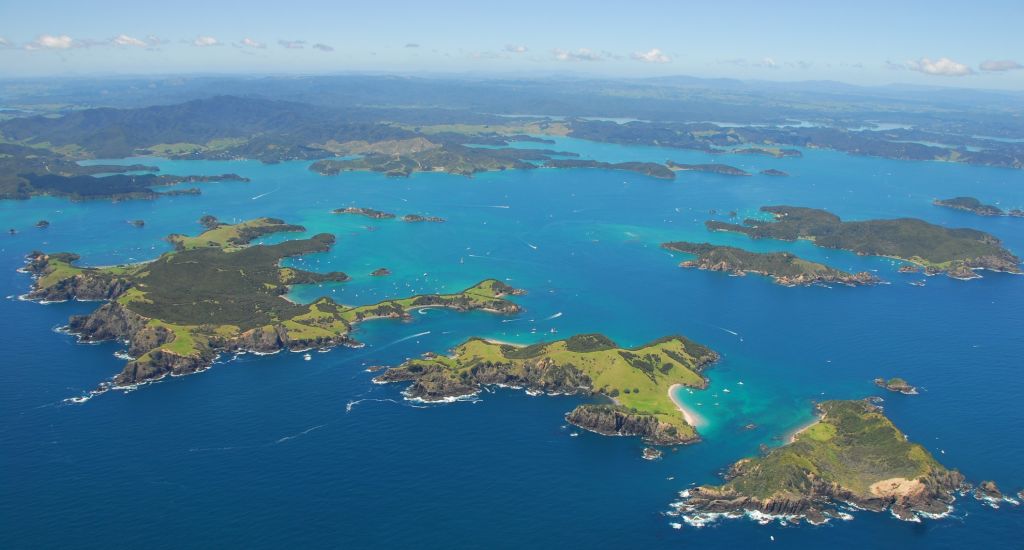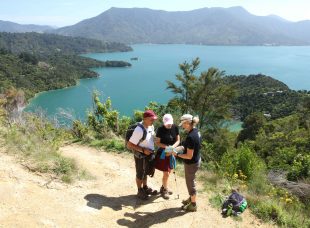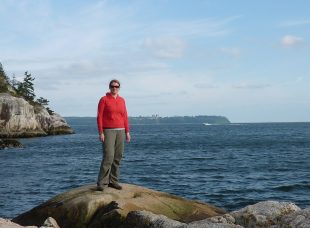Overview
New Zealand. Aotearoa. The Land of the Long White Cloud. However you refer to it, this beautiful island nation tucked away in the South Pacific is a country that never fails to enthral. It is relatively small but packs a full, heavy-weight punch with its scenery, from glorious stretches of golden sand and rainforest clad hillsides to breath-taking fiords and the towering peaks of the Southern Alps. There simply aren’t enough superlatives to describe it.
It has diverse and interesting wildlife, both on the land and in the ocean, and millions of hectares of untouched wilderness where you will find superb walks and very few other people. This is teamed with vibrant, cosmopolitan cities and wonderfully laid-back country towns where you feel like you’ve stepped back in time. A large proportion of New Zealanders are of European descent and this influences much of the country’s culture, however, Maori make up nearly 15% of the population and their traditions and beliefs are kept alive in the arts, story-telling and in everyday language. Don’t be surprised to be greeted with a cheery Kia Ora (hello) as you travel around!
All of this is underpinned by the wonderful warmth and friendliness of the locals, and perhaps it’s this that really captures people’s hearts. New Zealanders are rightly very proud of their country and welcome visitors as if they are ‘whanau’: family. We are sure that you will find the Kiwi hospitality one of the most memorable parts of your holiday.
Food & Drink
Since the turn of the century New Zealand cuisine has come on leaps and bounds and an interesting creative flair now runs through many of the menus that you will find as you travel around the country. Meat and seafood feature widely, however, alternative diets are also well catered for and whatever your requirements you will find something delicious to try. Many restaurants have a ‘farm to fork’ ethos which means dishes are seasonal and fresh and you will spot influences from both the South Pacific and further afield. Whilst there are many opportunities to treat yourself to something innovate it’s also worth sampling some traditional Kiwi favourites such as whitebait fritters, hokey-pokey ice cream and even, perhaps, their version of Marmite.
Of course, New Zealand is one of the world leaders in wine production and you will find an excellent selection available at restaurants, in the local supermarkets and of course at the vineyards themselves. Along with the better-known cellar doors there is an interesting selection of boutique vineyards who are equally as happy to show off their produce. There is a great variety of both red and whites to try so make sure you allow time to enjoy a couple of glasses along the way.
When to Travel
New Zealand has opposing seasons to the UK with the naturally warmest months being December, January and February. However, it’s perfectly feasible to visit outside of this period and indeed arriving out of peak season can be both cheaper and quieter. Late October and November can be a lovely time to visit as spring takes hold and the snow on the mountains creates a beautiful frame for the fresh, green hills. Whilst the weather can be mixed, the days are long and when the sun shines the temperature can be very reasonable. At the other end of the season, in March and April, the weather is often more settled than in January and February and, as you move towards the end of April, autumn colours spread across the country (mostly in the South Island). May to September can be quiet and cold therefore unless you’re intending to ski we wouldn’t recommend going during these months.
Practicalities
Flights
Air New Zealand are the county’s national airline and they fly every day between London and Auckland via Los Angeles. However, there are a number of other airlines that fly regularly to New Zealand, each transiting through a different city: Cathay Pacific (Hong Kong), Singapore Air (Singapore), Thai Air (Bangkok), Emirates/Qantas (Dubai & Sydney or Melbourne), Malaysian Air (Kuala Lumpur), Etihad (Abu Dhabi) and various others. It is possible to add a stopover in any of the places on your way to/from NZ. New Zealand also has an excellent domestic flight network meaning that it’s easy to hop around the country rather than have to drive all the way back to where you started.
Visa
Due to the current Coronavirus outbreak across the world, please note that entry requirements to New Zealand may have changed.
For all updates please check the latest FCO Travel Advice here: https://www.gov.uk/foreign-travel-advice/new-zealand
Language
English is the predominant language spoken in New Zealand, however, both English and Maori are official languages.
Electricity
New Zealand has an electrical supply of 240v. Sockets take an angled two or three flat-pin plug.
Driving
Driving around New Zealand is wonderfully easy – they drive on the same side of the road and have mostly similar road rules to the UK. Apart from a couple of small stretches of motorway around Auckland, Wellington and Christchurch the roads are one lane in each direction with considerably less traffic than the UK. The police view speeding particularly dimly so it’s important to keep to the speed limits, however, there’s absolutely no hurry here – the scenery is so spectacular that you will find yourself, and others, moving at gentle pace in order to soak it all up.
Health
New Zealand has a reciprocal healthcare agreement with UK by which visitors can access immediate healthcare on the same terms as at home. However, all visitors should also have comprehensive travel insurance that covers all healthcare eventualities.
Is it not necessary to have any vaccinations in order to visit New Zealand, however, if you are in any way concerned about your health and fitness we highly recommend you contact your G.P. for expert advice before you start planning. We also like these guys (though this does not replace a trip to your G.P.): The Travel Doctor, an interactive website providing specialist health information for travellers plus tips and advice on a range of common travel related topics.
Money & Tipping
The currency in New Zealand is the New Zealand dollar ($). Credit and debit cards are widely accepted (charges may apply) and ATMs are available in most towns.
Tipping in restaurants and in taxis isn’t common practice in New Zealand, however, if you have experienced exceptional service then feel free to tip as you would in the UK. Tip a tour guide if you think they have done a good job and tip the bellboy or concierge at your hotel, however, don’t tip staff or hosts at smaller lodges and B&Bs.
Travellers Code of Conduct
– We provide all of our clients with a “Travel Facts” document upon confirmation of your booking. This details useful facts and travel advice for your chosen destination, including restaurant recommendations, reading tips, basic language, cultural traditions, climate information and brief historical overviews. We feel that this offers a useful insight into the country you are visiting, and can help you interact with local residents in a more sensitive, well informed manner. Please try to take the time to read this information before your visit, if at all possible.
– A number of the countries in which we operate holidays are religious societies with a widely observed set of customs. Always respect these norms, particularly when visiting religious buildings.
– To the best of our knowledge, all of the hotels, lodges and camps within our portfolio operate stringent measures to minimise water usage. Many of our destinations have issues with water supplies to a certain extent so feel free to raise any possible wastage should you encounter it during your stays, either with the accommodation or with us upon your return.
– Please ask before taking photographs of people, and respect their wishes should an individual not be happy to be photographed. We find that friendly requests and a smile are usually met with assent.
– Strive where possible to make your own contribution to environmental practices within the destination you are travelling. This might include minimising your electricity usage, avoiding smoking in protected areas, sticking to marked roads at all times while self-driving, avoiding coral while snorkeling and safely disposing of all litter (recycling where possible).
– Where possible, try to purchase from local suppliers. This includes shopping for souvenirs, eating out in restaurants and booking further excursions during your free time. In areas where haggling is an accepted part of daily life, don’t become angry or offended if you are unable to obtain what you perceive as a fair price for an item. We emphasise to local suppliers that our clients should never be taken on unsolicited shopping trips, but if this does happen, try to retain your sense of humour, provide a firm refusal to participate and tell us about this on your return. We pass on all feedback from every trip undertaken with Holiday Architects to the relevant local suppliers, who share our commitment to travelling with sensitivity.
– Please don’t remove any indigenous items from their natural habitat and attempt to bring them back as a souvenir. This particularly applies to coral, shells, plants and food in the natural world, and to cultural artifacts and antiques.
– If you are unsure about anything relating to the above, please feel free to ask our local suppliers or your Holiday Architects specialist. All of these people either live or have travelled extensively in the country you are visiting and will be more than happy to offer their considered advice.


